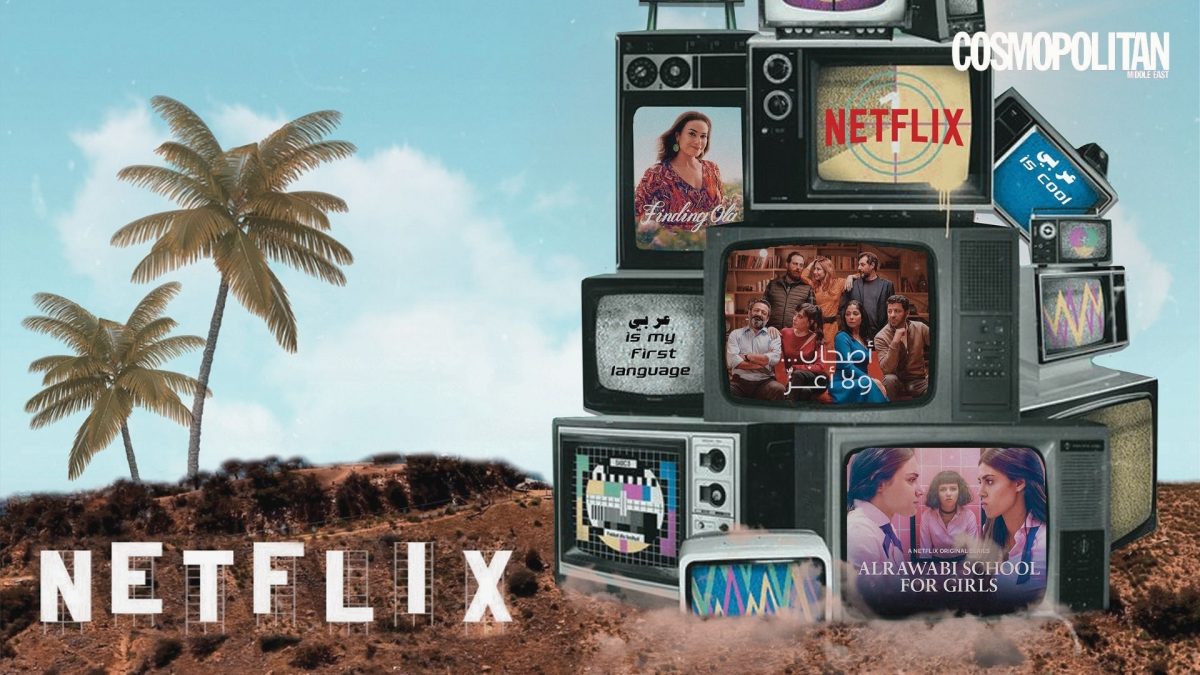Real talk: As a 23-year-old Emirati-Lebanese Gen Z, if you had told me two years ago that I’d be (unironically and without my mum’s influence) watching – and enjoying – Arabic TV then I wouldn’t have believed you. Turns out, Arab cinema is in a league of its very own – Gen Z are only just realising it.
As a Middle Eastern consumer, I want to see Middle Eastern representation on my screen. My day doesn’t end until I’ve turned on the TV to be met with that iconic red N motif. Binge-watching has become an international pastime for our generation. We’re a fast-paced bunch that have grown up with technology at our fingertips and are glued to our phones, so to see series and movies with Arab directors, producers and actors exploring taboo topics and real discussions that are relevant to us are, truthfully, huge.
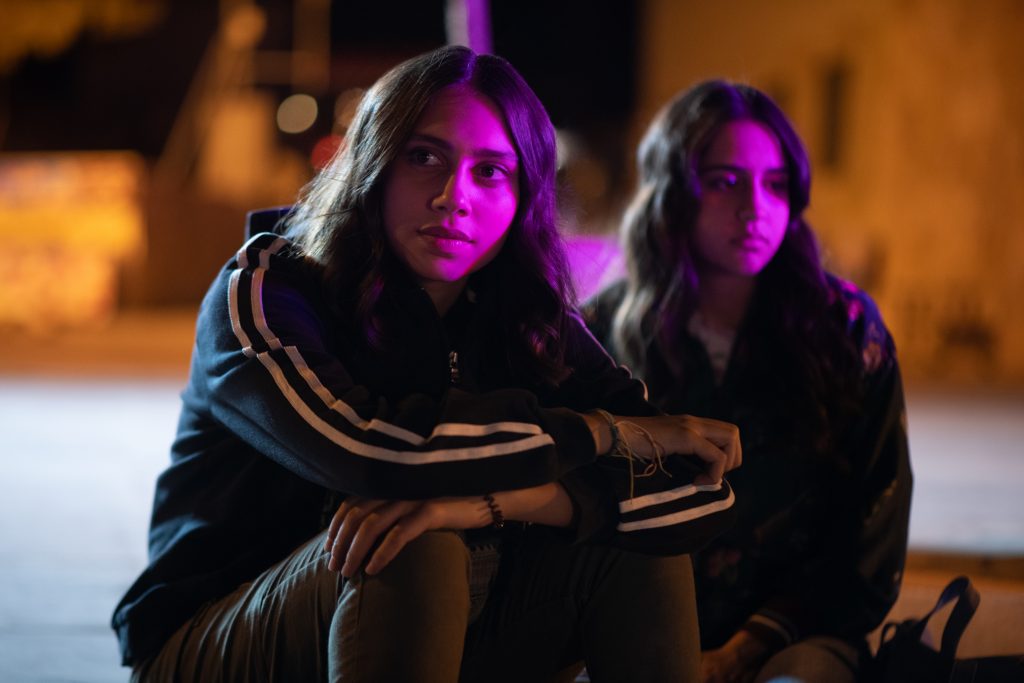
Netflix
It’s the type of content I wish I had watched when I was much younger and more impressionable. We didn’t get to live through the ages of Faten Hamama and Soad Hosny, or Abdel Halim Hafiz and Rushdy Abaza, and gone are the days of black and white cinema, nevertheless, Arabic cinema is seriously on the rise.
If you’re asking yourself, “wait, she’s Arab, why didn’t she just watch the other Arabic TV shows that were available?” Well, the short answer is that they weren’t ‘my thing.’ As a half-Emirati, half-Lebanese woman growing up in the UAE and going to a British school, I never did really feel ~Arab~ enough.
To this day, English is my first language, meaning any content I consume is therefore in English. I missed out on all the telenovela Nour-esqueplot twists that were all the rage in 2006 and was more concerned about whether or not Elena was going to pick Damon or Stephen in The Vampire Diaries. And this wasn’t uncommon among my peers, friends or siblings.
Don’t get me wrong, I understand Arabic and can (semi-confidently) speak the language, and I was raised in an Arab household where the traditions and cultural norms that were taught to me were just like any other Gen Z Arab my age. It’s just that as a younger, more open-minded generation, many local TV shows and movies would give in to the stereotypes that Gen Z try so hard to steer away from. The dramas were too melodramatic; the romances solely focused on the end goal of marriage; and the comedies possessed a very different and far-off sense of humour than what we now find funny.
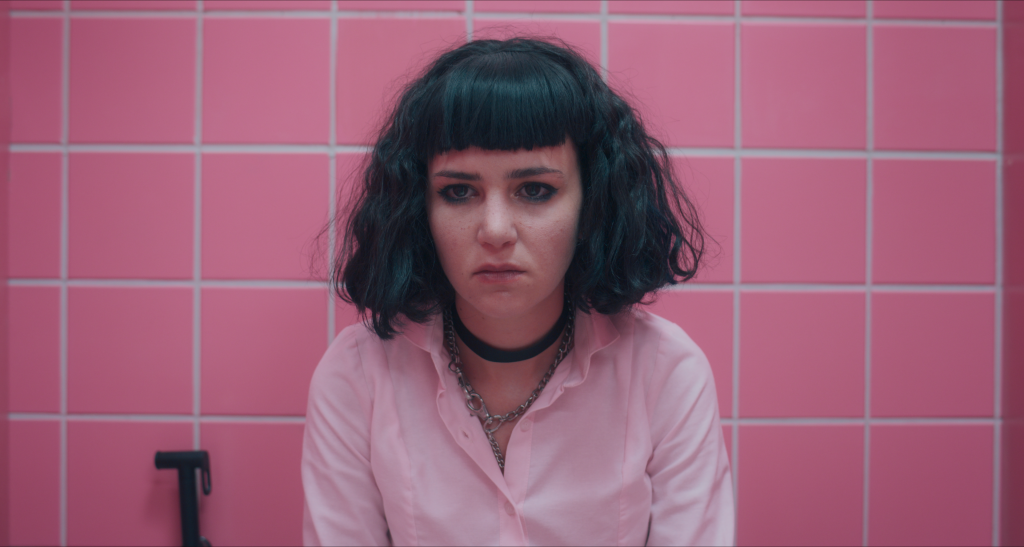
Netflix
Perhaps we can blame it on the Westernisation of my generation, or maybe it’s even down to the rise of the dating reality TV shows (shoutout to Love is Blind), but since the inception of Netflix’s latest Arabic Original releases, the first time ever, I feel like I’ve been missing out on Arabic cinema.
Insider Intelligence reported that out of the 214 million global paid Netflix memberships in 2021, 74 million of these are from the MENA region. Meaning a whopping 35% of users hail from the Arab states – and herein lies where the Netflix trajectory shifts… With the streaming service constantly and continuously looking to diversify its content, Netflix’s pledge to invest in local storytellers and create more nuanced entertainment for their Pan-Arab viewers seems like an obvious move.
First came Jinn, Netflix’s first Arab Original series, back in 2018. Starring young Arab talents like Salma Malhas, the six-episode supernatural teenage drama was unlike any other and introduced a new theme that the Arab world hadn’t seen before: magic. “This is a great opportunity to portray Arab youth in a very unique way,” said Lebanese director Mir-Jean Bou Chaaya. “The level of authenticity that Netflix is trying to achieve with this show is definitely what attracted me to be part of the project.”

Netflix
Since then, more and more regional content has been picked up by the streaming service powerhouse – think Finding Ola, Perfect Strangers, Paranormal and Al Rawabi School for Girls – and truly changed the way the younger generation watches TV. I’ve switched out the Gossip Girl, 90210 and Dynasty-esque shows in favour of Netflix’s Middle Eastern offerings, which I now watch with a legitimate sense of pride.
Yes, Egyptian actors were pioneers when it came to the cinema in the MENA region, but the content just wasn’t digestible for a younger audience. Now, though, through its unique model of releasing the entirety of a show in one shot, a move that eliminated the need for audiences to watch episodes in weekly increments, Netflix has found that sweet spot between communicating Arabic content whilst making it relatable and entertaining, bridging that gap between younger and older generations. Every time they drop a new show, the entire world takes notice.
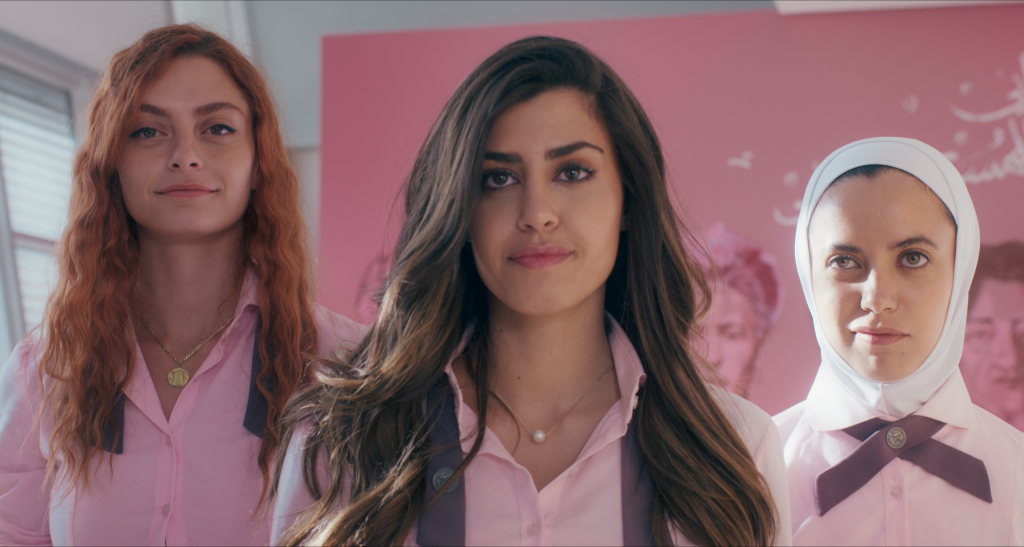
Netflix
Take the newly-launched Finding Ola, the mini-series that chronicles Hend Sabry as the titular character finding herself again at 40-years-old following a divorce. Sounds like something Gen Z can’t relate to, right? Wrong. The way that director Hadi El Bagoury and executive producer Hend Sabry convey the narrative between mother and daughter, Nadia (Aicel Ramzy) and Ola, from the dialogue to the style of filming, is accurate and relatable – a creative move that was entirely intentional.
“Including Gen Z, like we did in Finding Ola, was a choice. Our choice, and my choice personally as a showrunner and executive producer,” says Hend Sabry to Cosmo. “To include both Gen Z and older generations is healthy. The younger generation will feel represented and they will feel seen by Arab drama and cinema; they’re the biggest audience that we need to cater to.” With Finding Ola, no matter how old you are, it’s a series that invites a younger audience.
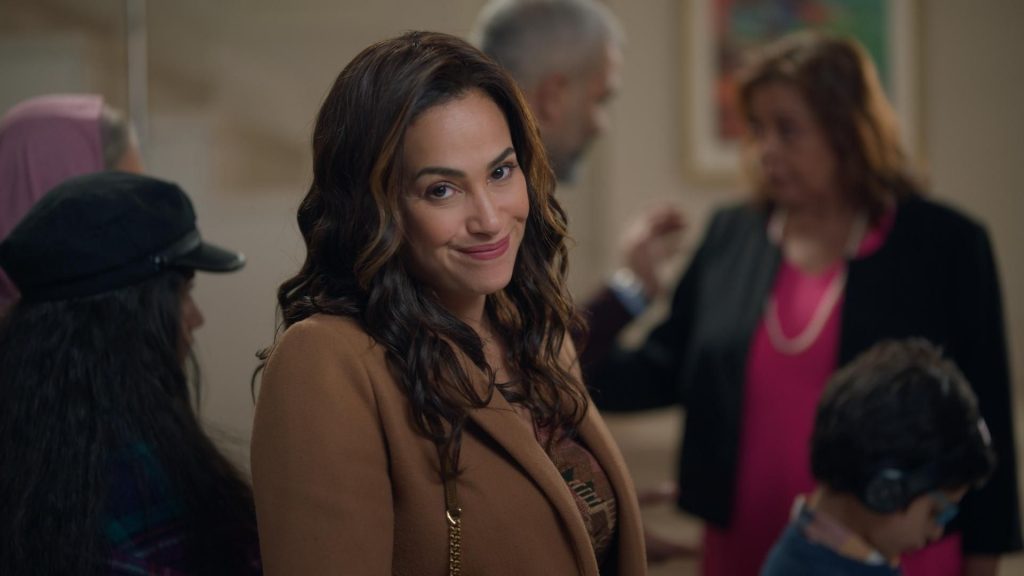
Netflix
Perfect Strangers, the Arabic remake of the Italian classic, which has caused recent conflict online, and has even been banned in some countries, is a dramedy featuring huge names like Nadine Labaki, Mona Zaki, and Adel Karam. The plot? Seven Lebanese and Egyptian friends get together for dinner and agree to openly share any calls or texts they get that evening, exposing plenty of secrets.
The movie skyrocketed to number one on the streaming service across the UAE Egypt, Lebanon, Saudi Arabia, Qatar and Kuwait, and number five globally. As arguably the most progressive generation (Euphoria, anyone?), Gen Z aren’t strangers to honest conversations, and this release, which covers taboo subjects like sexuality and infidelity, hit the mark. For the first time, we aren’t only looking to the Western world to tackle these topics.
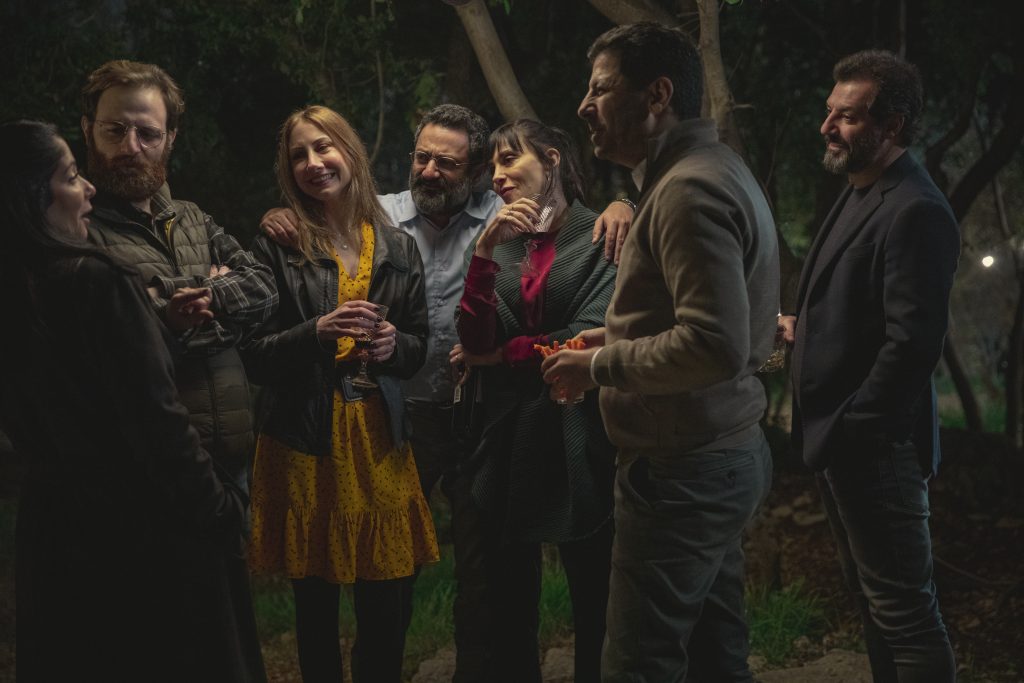
Netflix
Even Jordanian director, producer, and writer Tima Shomali, who was the creative brains behind Al Rawabi School for Girls, thinks it’s high time that Arabic entertainment should be catering to Gen Z. “It’s time to start creating stories of the young adults and Arab youth,” she says. “I do feel the lack of young adult genres in the region in general, it’s important as well for young audiences to feel represented, and to find content that is close to them and they can relate to that speaks their own language.”
Tima perfected this recipe in Al Rawabi School for Girls, a 2021 Netflix Arab Original that revolves around the lives of Jordanian high school girls who are outcasts in a prestigious school. From bullying and mental health to discussing love and religion, this series covers all the real-life issues that Arab teenage girls face. Young first-time actors were even cast for the show to give it something “special, real, and raw.”
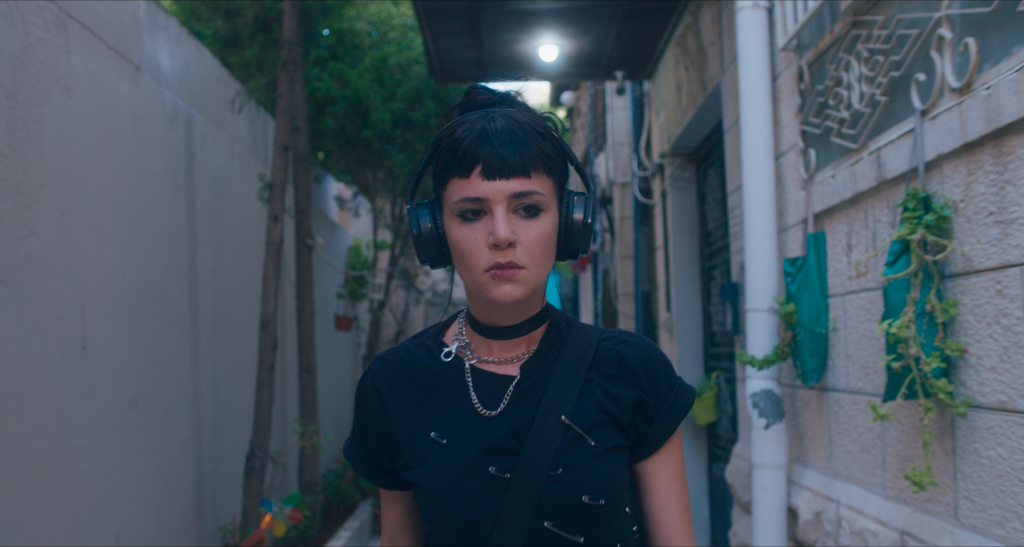
Netflix
There’s no doubt there has been a drastic change in how people now consume TV, and it feels like Arab cinema’s foray into the video-on-demand space has been its saviour. Tima Shomali and Hend Sabry agree, too.
“Digital media and streaming platforms have, indeed, changed the formula,” says Tima. “These online streaming platforms have allowed for more productions to happen and for young, aspiring filmmakers to have a space to be creative in a way that pigeonhole them into sticking to the classic movie-making formula.” Hend Sabry adds, “Now more than ever there are projects upon projects happening outside of the traditional 30-episode Ramadan release. We actually need content throughout the year to fill those grids.”
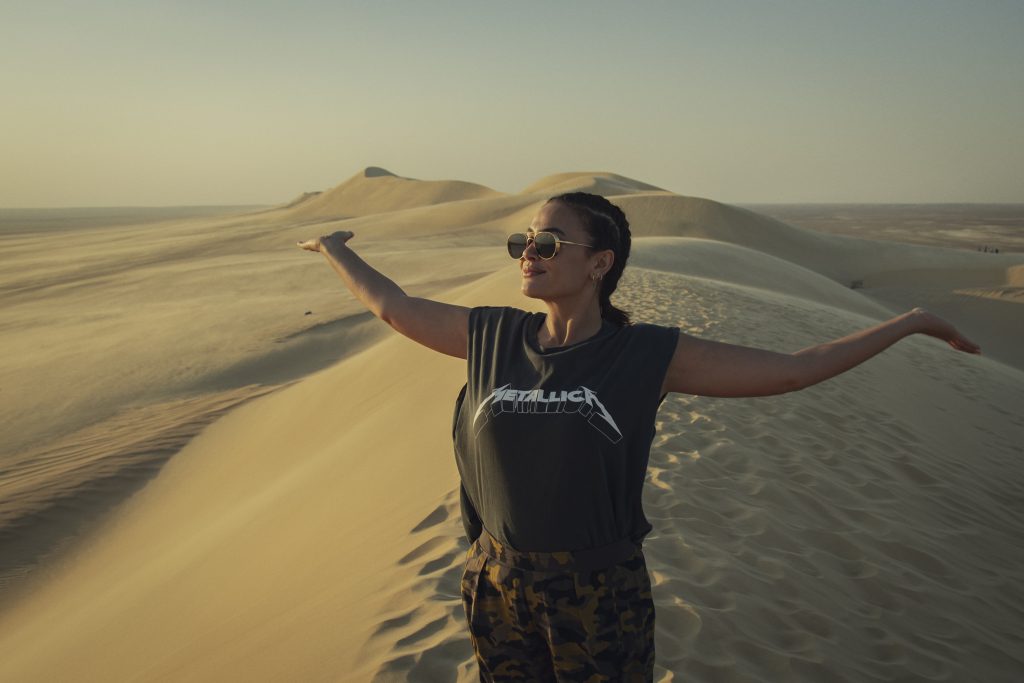
Netflix
It feels like Netflix has become as dependent on Gen Z as Gen Z is on Netflix. This recipe of marrying all-around better content with a view-on-demand format, and releasing it on a platform that has already acquired the masses, has more than proved its ability to impact the Arab entertainment industry, particularly with Gen Z.
Alienation of youth is on the out, and one day I imagine – scratch that, I know – Netflix’s Top 10 list will be littered with Arabic content, and, quite frankly, I can’t wait.
Graphics created by @outofcanvas.

